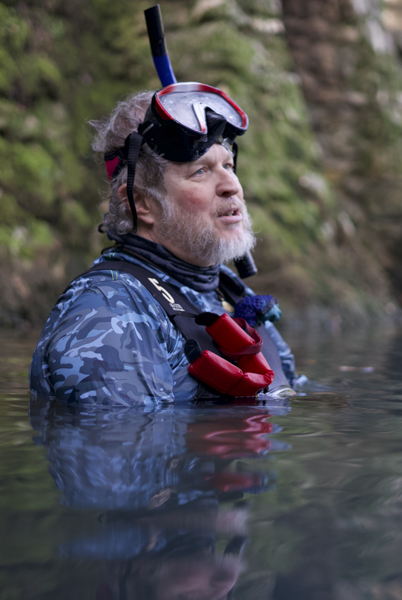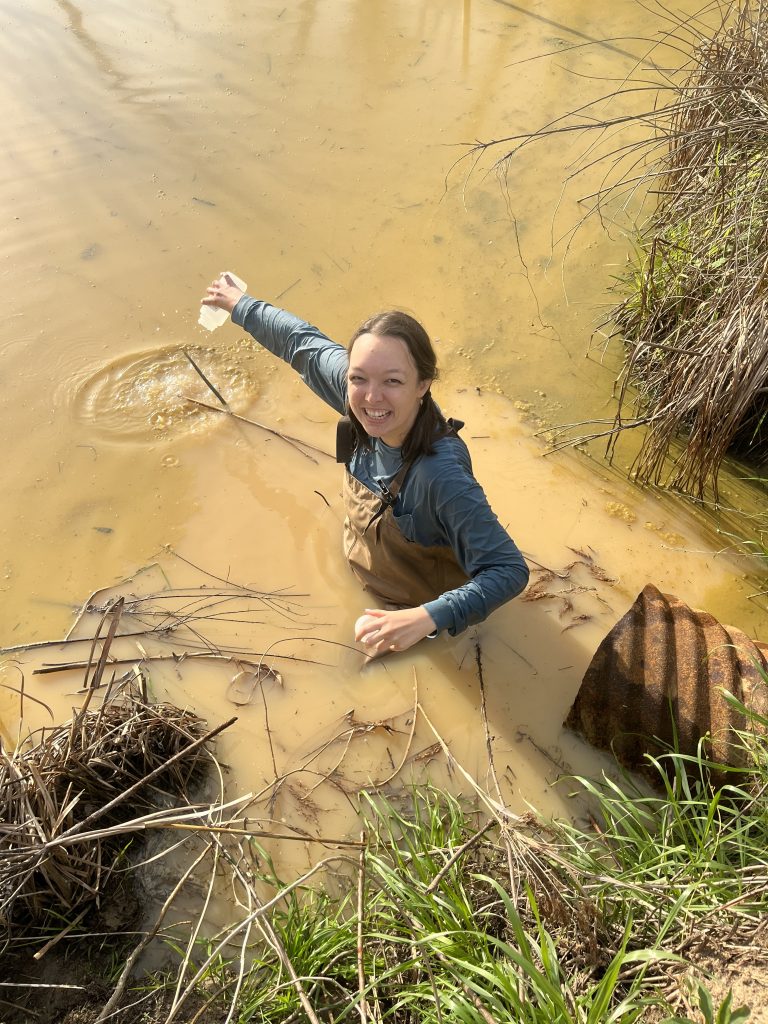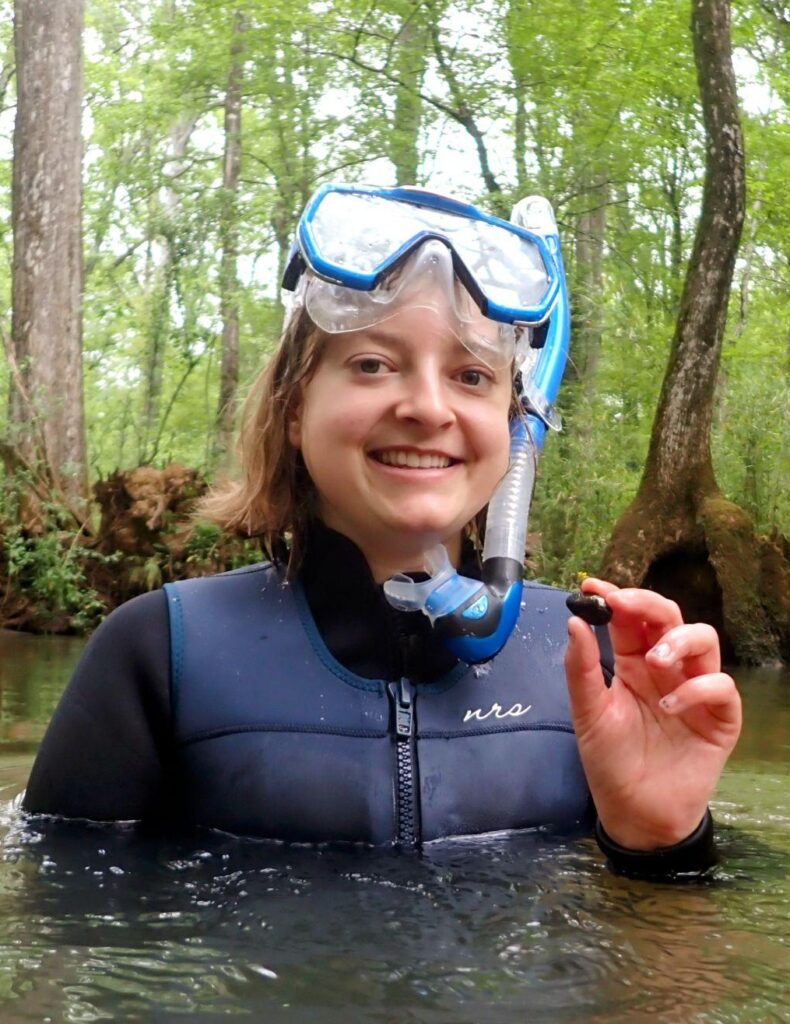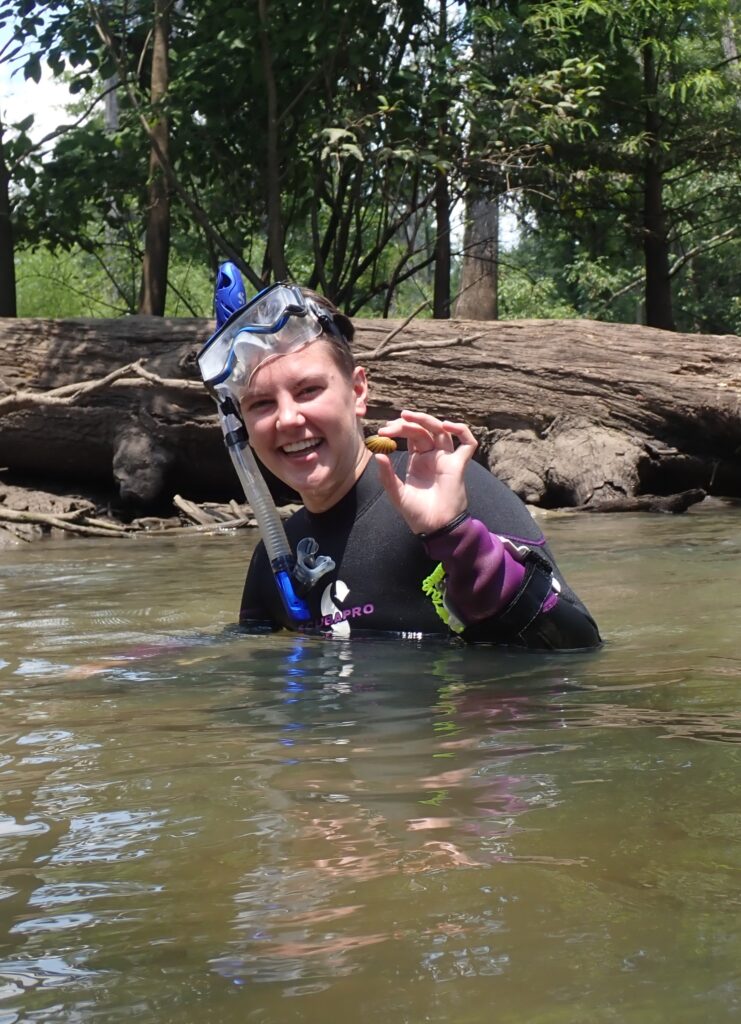People

Stephen W. Golladay
Affiliate Biologist
Steve is contributing to the development of a Habitat Conservation Plan for freshwater mussels (see ga-fit.org) through an appointment with the Georgia Water Planning and Policy Center at Albany State University. He applied for and was granted affiliate status at the Jones Center at Ichauway. Steve has 30+ years of experience in the lower Flint River basin with published research on a variety of topics relevant to GA-FIT including hydrologic change, water quality changes associated with human land use, invasive species, and biological responses to increasing intermittency. He leads a research team documenting declines in freshwater mussels in response to water scarcity and has collected extensive data on mussel populations in the lower Flint River basin. He annually hosts the Apalachicola Chattahoochee Flint (ACF) Mussel Workshop at the Jones Center along with collaborators from Georgia DNR Non-game Wildlife Program and USFWS – Panama City. Steve holds the required State and Federal Permits to work with listed mussel species in designated critical habitat within the lower Flint River basin.
He aspires to take every resident of the ACF on a snorkeling adventure to observe freshwater mussels in the wild.

Caitlin Sweeney
Research Biologist
- caitlin.sweeney@jonesctr.org
- Phone Ext: 4124
Caitlin, originally from Wetumpka, AL, received her BS in Environmental Science from Auburn University. She continued at Auburn to earn her master’s degree under Dr. Eve Brantley in the Department of Crop, Soil, and Environmental Sciences. Her research focused on soil amendments for bioretention cells, a form of green infrastructure for stormwater management. After graduating, Caitlin worked as a Watershed Program Assistant with Alabama Extension where she contributed to presentations and publications for the Alabama Private Well Program and Alabama Watershed Stewards Program. She joined the Jones Center Aquatic Biology Lab as a Research Associate in 2021 and quickly developed a passion for freshwater mussels. She is excited to be contributing to freshwater mussel conservation in the lower Flint River basin. Her favorite mussel is the Sculptured Pigtoe (Cyclonaias infucata).

Christine Bahlinger
Seasonal Technician
Originally from San Antonio, Texas, Christine attended the University of Vermont where she received her BS in Environmental Science with a Concentration in Conservation Biology and Biodiversity. Her previous experience includes working as a Farm Crew Leader in Americorps and as a Wildlife Biology Intern at Rio Mora National Wildlife Refuge. Christine’s work helped discover the presence of the endangered New Mexico meadow jumping mouse on the refuge.

Amber Johnson
Conservation and Remote Sensing Technician
Amber earned her BS in Environmental Science and Policy at Florida State University. Following graduation, she began working in the Landscape Ecology Lab at the Jones Center. While in landscape, Amber contributed to many projects involving vegetation surveys, LiDAR scanning, and dendrochronology. This led to her own research project entitled “Using Dendrochronological Methods to Determine how Hurricanes Affect Tree Growth in Longleaf Pine.” Amber now splits her time between the Mussel Conservation Lab and the Landscape Ecology Lab. Her experience with remote sensing technologies will help our lab complete stream habitat mapping for the Habitat Conservation Plan.

Jenna Jackson
RaMP Fellow
Jenna, originally from Tuscaloosa, AL, received her B.S. from the University of Alabama concentrating in marine science and biology. Her previous scientific experience includes working as an assistant environmental chemist at BASF and a technician at the University of Alabama’s Ichthyology Collection. Jenna joined our lab in June 2024 as part of the Woods to Water RaMP (Research and Mentoring for Postbaccalaureates) program. Her future research interests predominantly lie with ecological adaptions of invertebrates and microhabitat functions in aquatic environments.

Chelsea Smith
Graduate Student
Chelsea Smith completed her BS in Biology at the University of Alabama in 2011 where she had the opportunity to take many outdoor ecology classes and begin working with stream macroinvertebrates in the lab of Dr. Alex Huryn. The summer following her graduation, she traveled to the Arctic LTER to aid in collecting and tracking arctic grayling and sampling macroinvertebrates as part of a large-scale nutrient addition with Dr. Huryn’s lab. In the fall of 2012, Chelsea began her masters work in conjunction with the University of Georgia under Dr. Alan Covich and The Jones Center at Ichuaway with Dr. Paul McCormick. Her research focused on macroinvertebrate community composition across a gradient of stream permanence. Following the completion of her masters, she worked with both Dr. McCormick and Dr. Golladay and then became the research associate for the Aquatic Biology lab. Chelsea is currently working on a PhD at the University of Alabama under Dr. Carla Atkinson and Dr. Golladay.
Mussel Conservation Alumni

Natalie Horn
Technician, Mussel Hugger
Natalie received her BS in Marine Science from Coastal Carolina University. During her time at the Jones Center, Natalie summarized ~30 years of data for a research poster looking at long term trends in the nitrate concentration of springs entering the Flint River, gave a research presentation on our use of the Acoustic Doppler Current Profiler to assess in stream habitat, contributed to our publication Mussels of the Flint River Basin, and performed many hours of mussel surveying in 2023. Natalie is now a Research Technician at the Florida State University Coastal and Marine Laboratory.

Emma Greenberg
Technician, Mussel Hugger
Emma received their BS in Wildlife Science from SUNY Environmental Science and Forestry. They have a passion for all things nature. During their time at the Jones Center, Emma summarized ~25 years of mussel surveys for a research poster assessing the change in distribution of endangered mussel species over time. They also performed many hours of mussel surveying in 2023. Emma now works with herps in California.

Stephen W. Golladay, Ph.D.
Scientist
Dr. Golladay’s interests include the ecology of streams and wetlands, the impact of human land use on water quality and aquatic invertebrates, and the impact of variation in hydrology on ecological processes and aquatic communities Recently, he has developed an interest in the ecology and conservation of rare and endangered freshwater mussel species.
Dr. Golladay has served as a technical advisor to the Sand County Foundation, Georgia EPD, DNR and Water Management districts in Florida. He has developed training activities for resource professionals in partnership with the U.S. Fish and Wildlife Service. Dr. Golladay also has assisted in the development of programs to enhance the
natural resource awareness of regional educators in cooperation with regional Georgia Youth Science and Technology.
